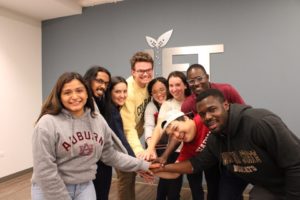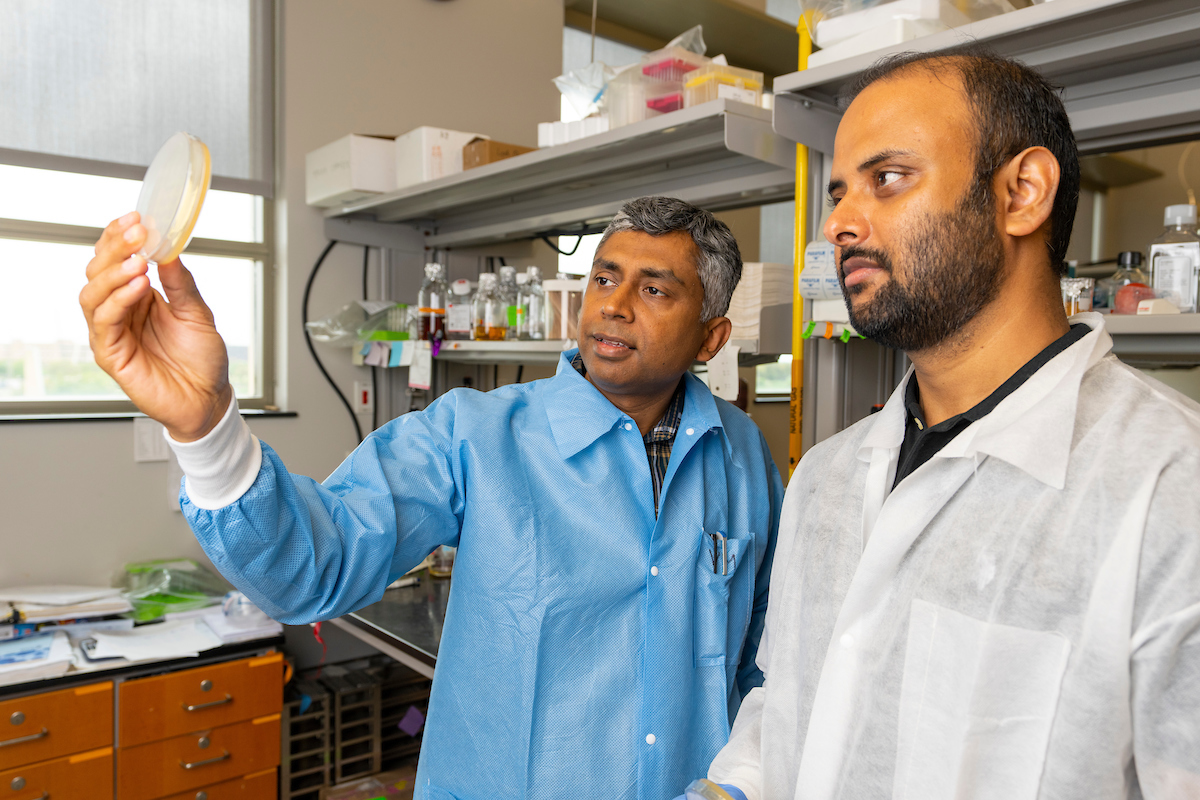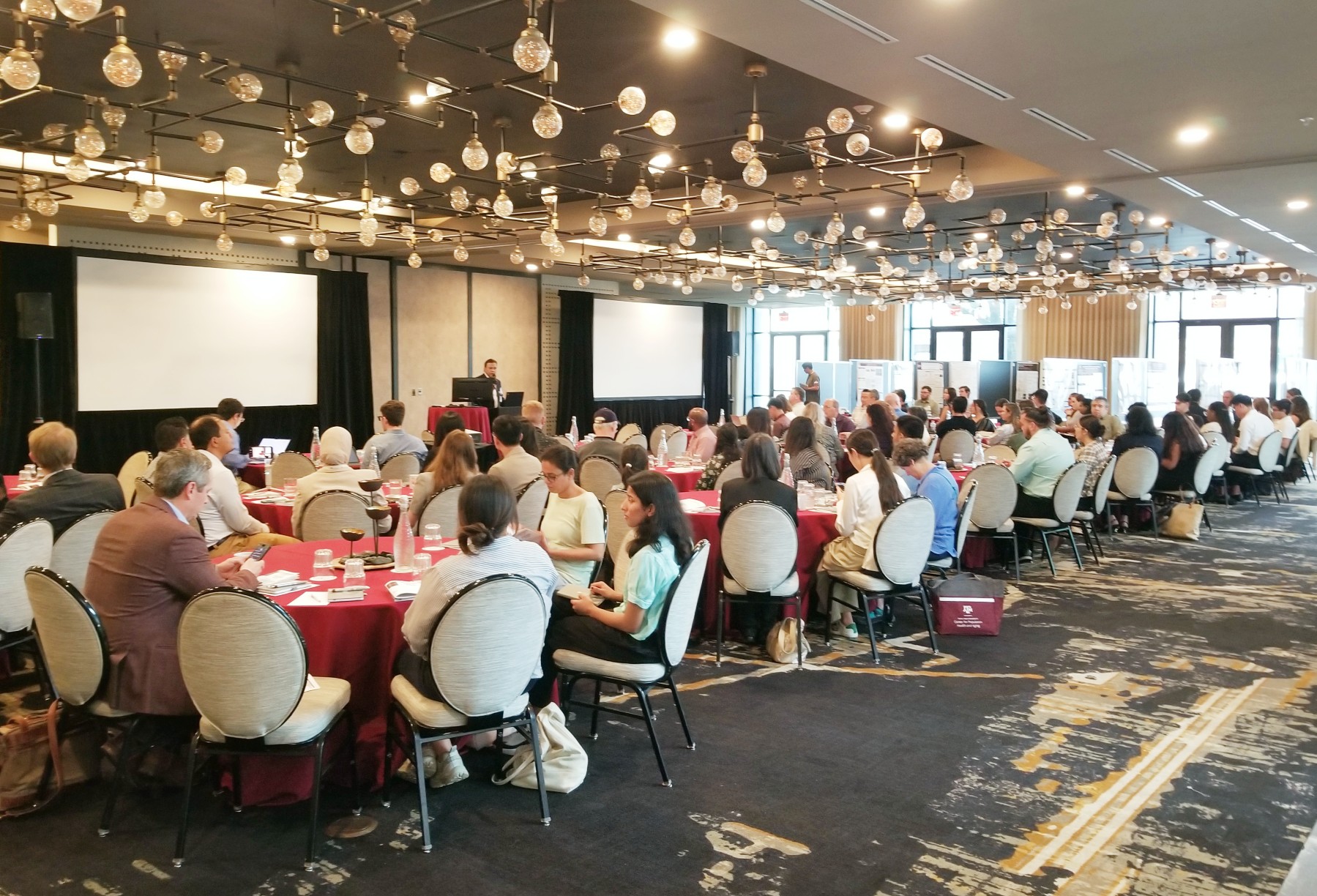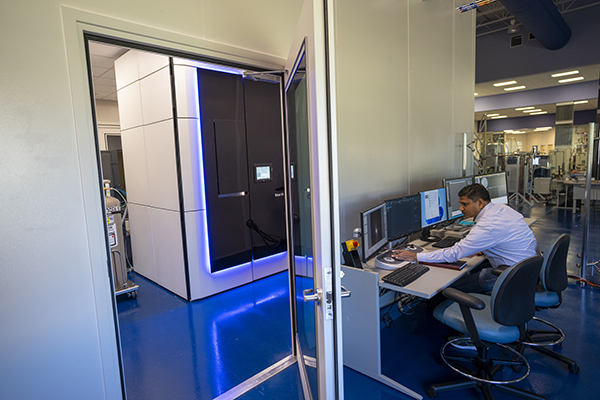Food science and technology graduate student reflects on his time in the department and future goals
Humble beginnings provided desire to make a difference through food sustainability
The Texas A&M College of Agriculture and Life Sciences’ Department of Food Science and Technology provides graduate students with advanced training in the basic sciences, processing technologies and engineering processes related to production, while also handling the processing, distribution and utilization of food.

Cyprian Syeunda is a doctoral student from Kenya currently studying in the department. Below, he shares his thoughts on the benefits of a degree in food science and technology and why the department was a good fit for him.
Why did you choose to attend Texas A&M University?
Texas A&M University has excellent alumni outcomes. Students from food science and technology have a competitive edge when it comes to positions in the food industry. After completing my undergraduate and master’s degrees in Kenya, I knew I wanted to pursue a doctorate in the Department of Food Science and Technology at Texas A&M.
The university’s reputation for excellence through high-quality academic programs, internationally recognized authoritative faculty and scholars, excellent campus environment and commitment to research positively influenced my choice.
Since attending Texas A&M, I’ve been fortunate to work with great professors like Dr. Joseph Awika (also the department head), whose research focuses are in line with my desire to advance how to make the best use of our food resources and minimize waste.
Did your upbringing have any bearing on your decision to pursue food science?
Growing up in a small village in Kenya, my grandfather always made us plant cereals and legumes every crop season. These commodities ensured we had a balanced diet.
Cereals such as sorghum and corn and pulses such as cowpea, were the primary sources of calories. My lunchbox most often consisted of corn and beans, commonly known as Githeri. My evening meal was comprised of a similar combination. Occasionally, boiled tubers — cassava, arrowroot or sweet potato — compensated for cereals as a source of calories for my breakfast.
Animal protein was expensive and not always affordable. Eating animal protein was associated with opulence and a luxurious lifestyle. These humbling life experiences informed my interest in food science.
I am currently working in the department’s Cereal Quality Laboratory, researching how to improve consumer acceptability of whole grains and fortified whole grain-based products. The lab is also involved in international projects aimed at using grains to improve livelihood through nutrition and food security for small-scale farmers in Africa.
What is your favorite food science and technology class?
I consider myself fortunate to have been able to join a program established by internationally recognized past faculty members like Dr. Lloyd Rooney (emeritus regents professor and faculty fellow, Department of Nutrition) and Dr. Ralph Waniska (professor, Department of Soil and Crop Sciences).
They set up the program so that the courses are relevant to the research and future career projection of their students. Food Carbohydrates ranks among the top for me because it integrates food chemistry with human nutrition and biochemistry. In this class, I learned the fundamentals and functionality of the major food constituents for the human body, including their complex relationship to food processing, product development, and sensory and human health. Understanding ingredient functionality is an excellent skill for success in the food industry, and this course prepared me for that.
What activities are you involved in within the department and university?
You can count me in on anything that promotes environmental cleanliness and good neighborliness. I like participating in the annual Big Event, which I find gratifying because it effectively illustrates Aggies’ core value of selfless service and support for essential workers.
In the department, I have been a research/teaching assistant since 2020, mentoring and helping undergraduate students understand course content and group discussions. I have also served as the chair of product development for the Cereal and Grains Student Association, with an additional seat as an advisory committee member.
I am also a board member at the internationally recognized Institute of Food Technologist Student Association, IFTSA, helping further its strategic goals and continuing with the Aggie legacy of leading by example in everything we do at local, national and global levels.
These volunteering activities have helped me to develop skills to inspire future generations, mostly from Texas A&M, to pursue graduate-level coursework and study food science and technology.
What advice would you give undergraduate students interested in pursuing a food science and technology graduate degree?
Any food science and technology undergraduate students who are wondering if they should pursue a graduate degree when the time comes should know two main things:
- Food science is broad, so selecting an area of interest should come first.
- Find a professor to serve as your advisor. Be aware that that can be contingent upon who has the lab space and funding available.
Additionally, graduate school can be demanding because of the research workload. Therefore, selecting a living place conducive to studies will greatly benefit your overall experience. Also, you need to have self-motivation and determination in plenty. Motivation can get you started but determination will help you finish.
What are your plans post-graduation?
I desire to join the food industry in research and development as a product developer. I would like to contribute to projects and programs dealing with food processing, food safety, and quality and sustainability. For now, I plan to continue teaching and offering insight to the fantastic undergrad students in my department.
How do you feel your time as a food science and technology student helped prepare you for a career?
The program has expanded my bandwidth of food science understanding in multiple ways. Beyond improving my communication and leadership skills, attending and presenting my research findings at food science workshops and national conferences has allowed me to network with industry professionals, external stakeholders, former students and potential employers. I also can’t stress enough how the leadership opportunities I had with IFTSA expanded my external engagement with other food science peers and scholars.
In addition, the food science and technology courses I took integrated biochemistry, human nutrition and physiology, which I believe at a technical level have equipped me with scientific principles, critical thinking skills and the knowledge required to compete in the food science job market effectively.
What is your favorite food or drink?
I would say my beverage of choice is tea because I am Kenyan. It’s delicate to enjoy, especially when made with whole milk or cream and can be beautiful without milk and taken with bread for breakfast. If you want to try, please don’t toast the bread; just apply margarine and enjoy.







